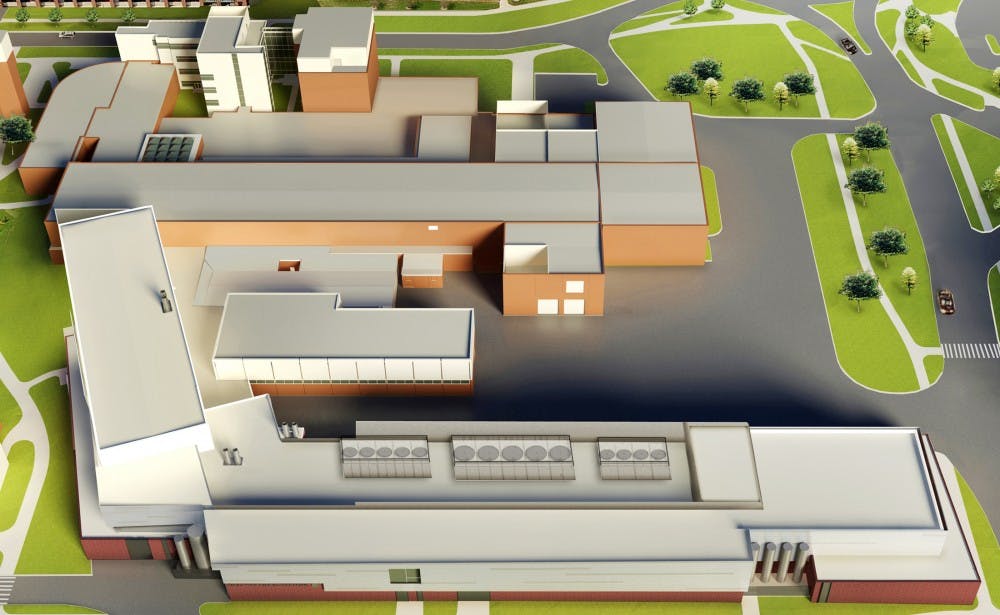The fate of funding for the multimillion dollar Facility for Rare Isotope Beams, or FRIB, at MSU is on shaky ground after President Barack Obama’s fiscal year 2013 budget proposal was announced Monday.
It recommends $22 million for FRIB in 2013 — less than half the $55 million originally stipulated under the university’s agreement with the Department of Energy.
“We are, of course, happy that FRIB is in the request,” said Konrad Gelbke, director of MSU’s National Superconducting Cyclotron Laboratory and FRIB. “(But if the budget) is enacted, it clearly would cause a problem to the project that is currently laid out.”
Those problems are twofold, he said. There likely will be an increase of the cost of the project, and it likely will slip past its scheduled benchmarks for completion.
The project is budgeted to cost $600 million total, with the remainder of the money coming from state dollars and future indirect cost recoveries derived from the project.
Construction of the facility still is expected to be complete by the end of the decade, according to the federal budget, but Gelbke said the wording is vague.
Heather Higginbottom, deputy director of the White House Office of Management and Budget, said officials have increased funding in other manufacturing research industries and as a result, they had to cut funding in other areas, including FRIB.
The budget must be approved by Congress to be enacted, and because of partisan politics in Washington, D.C., that might not happen anytime soon.
“We’ve had to make difficult trade-offs to have those increases,” Higginbottom said, adding that officials will continue to work with Congress to increase funding for projects such as FRIB.
The project received critical decision 1 approval in September 2010, which established the design of the building to house the facility and the next phase’s cost, estimated at about $55 million, FRIB’s Project Communications Manager Alex Parsons said in a previous interview.
The Board of Trustees approved $20 million for excavation at the project site beginning in May, and FRIB is waiting for the possible approval of critical decision 2 this spring, which would push the project further to completion.
MSU President Lou Anna K. Simon said in a statement that she is very concerned with the project’s funding, given the fact the Department of Energy’s Office of Science received a 2 percent increase in funding while at the same time, the nuclear physics program was cut 3.8 percent — including FRIB.
“We will continue to prepare for the April readiness review, which remains an important part of the process,” Simon said. “We will work with members of our congressional delegation who have been such staunch supporters of FRIB to keep this important project on track.”
U.S. Senators Carl Levin and Debbie Stabenow, both D-Mich., echoed such sentiments in their own statements and said funding the project fails to meet the federal commitment to MSU and the state.
“I will continue to work to keep FRIB on track and on the timetable that all parties have agreed to and that is vital to America’s continued pre-eminence in nuclear science,” Levin said.
Gelbke said the support of the project still gives him hope about its progress and future.
“If you have a lot of smart people in one place, it wouldn’t be surprising to see other benefits come out of the area,” Gelbke said.
Staff writer Ian Kullgren contributed to this report.
Support student media!
Please consider donating to The State News and help fund the future of journalism.
Discussion
Share and discuss “FRIB faces drastic cuts to federal funding for 2013” on social media.







